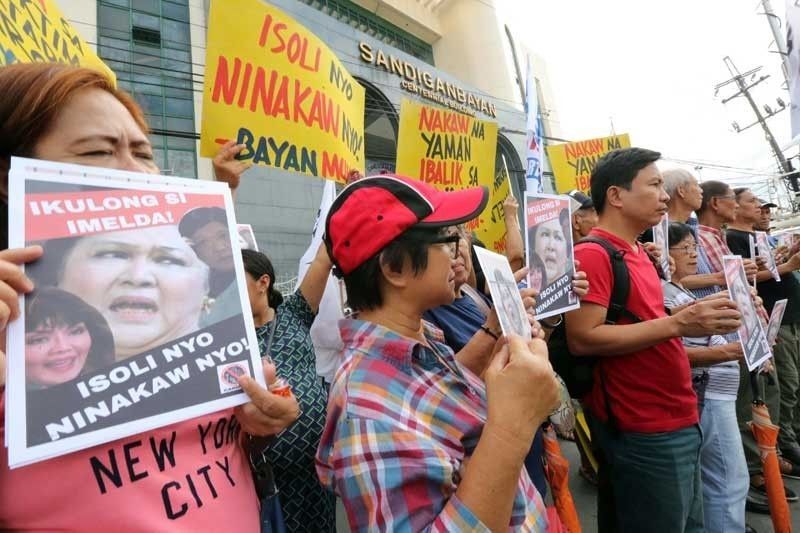Ex-PCGG chief: Sandigan ruling on Marcos ill-gotten wealth lacks ‘historical context’

MANILA, Philippines — Former Presidential Commission on Good Government Commissioner Ruben Carranza on Wednesday said the Sandiganbayan's dismissal of a civil case involving the ill-gotten wealth of the Marcoses failed to consider years’ worth of evidence.
In a decision issued by the anti-graft court's Second Division on September 25 but only released recently to the media, the Sandiganbayan ruled that the PCGG failed to prove that the late dictator Ferdinand Marcos and former First Lady Imelda Marcos along with alleged Marcos cronies — Bienvenido Tantoco Sr., Bienvenido Tantoco Jr., Gliceria Tantoco, Maria Lourdes Tantoco-Pineda and Dominador Santiago — had acquired ill-gotten wealth from 1965 to 1986.
“Many of the cases that were filed by the PCGG relied largely on whatever documents were found when the Marcoses fled Malacanang,” Carranza said in an interview with ANC.
The PCGG submitted items of evidence that include unexplained assets, such as real properties, shares of stocks, cash, jewelry, vehicles and aircraft valued at billions of pesos.
“The other evidence that the PCGG realized are testimonial evidence of people who are dead, people who now refuse to cooperate, people who have fled the Philippines but their statements were submitted to the court not just in this case, but in many other cases that were already affirmed by the Supreme Court,” the former commissioner said.
“So what does that say? That says that the Sandiganbayan cannot simply rule on a single case without referring to previous cases already ruled by the Supreme Court, establishing the existence of a dictatorship under Ferdinand Marcos, and pointing out that there are in fact laws in the Philippines that specifically name Marcos cronies as having conspired with the Marcoses.”
Carranza said both the Marcoses and the Tantoco family had for years tried to delay litigation of a case by seeking a “favorable political environment that might help them whether directly or even undermine the case itself; undermine the way justice proceeds in the Philippines.”
He said both families did this by trying to find patrons under different presidential administrations spanning a decade.
“So, it’s not that there’s no evidence. The Sandiganbayan can rule on a technicality,” Carranza said.
“But there’s an entire line of jurisprudence from the Philippine Supreme Court that says that cases involving the PCGG, involving corruption under the dictatorship — have to be addressed with some liberality precisely because of the historical context of these cases.”
Carranza also said there is something “fundamentally wrong” with the involvement of Solicitor General Jose Calida in the decision.
“The solicitor general — whose office, in fact, handles litigation at the Sandiganbayan and in the Supreme Court on behalf of the PCGG — is an admitted Marcos loyalist... He hasn’t denied it. He openly supports the Marcoses,” he said.
Carranza also said the PCGG should exclude Calida from future actions due to this conflict of interest.
The former commissioner recommended appealing the case to the SC and pointing out flaws by the solicitor general and the Sandigabayan in handling cases that involve the Marcos dictatorship.
- Latest
- Trending





























